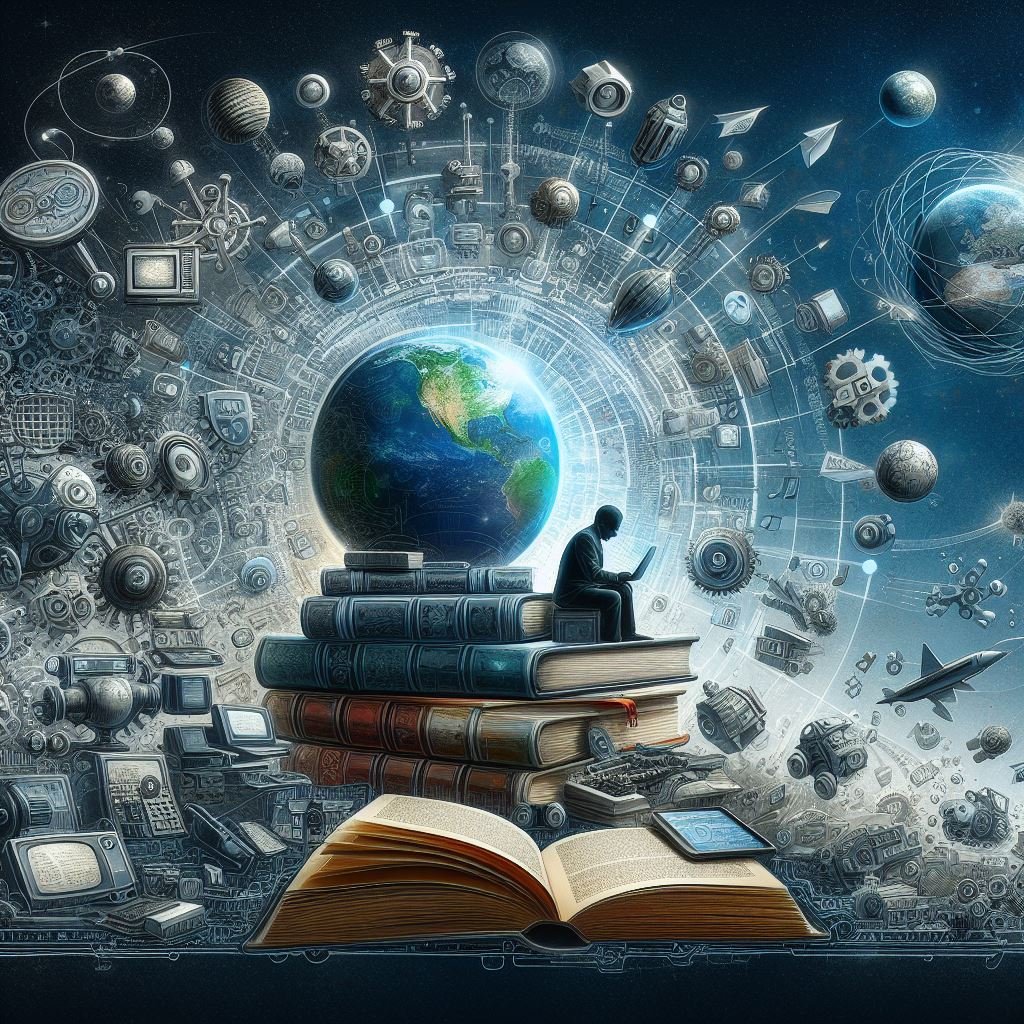The Evolution of Information: Will Modern Technology, Such as the Internet, Ever Replace the Book or the Written Word as the Main Source of Information?
Introduction:
In the 21st century, the rapid advancement of technology, particularly the Internet, has transformed the way we access and consume information. As our world becomes increasingly digitized, the age-old debate arises: will modern technology, with its vast capabilities, ever replace the traditional book or written word as the primary source of information? This article explores the evolution of information dissemination, examining the strengths and limitations of both mediums while contemplating the potential trajectory of their roles in shaping our knowledge landscape.
- The Internet: A Vast Digital Repository:
The Internet has ushered in an era of unparalleled access to information. With a few clicks, users can explore a multitude of perspectives, engage with multimedia content, and delve into the latest research. Search engines and online databases provide instant answers to queries, making information retrieval faster and more efficient than ever before. The Internet, with its interconnected web of knowledge, has become a powerhouse for disseminating information globally.
- Interactivity and Multimedia:
One of the Internet's strengths lies in its ability to deliver information in diverse formats. Multimedia elements, such as videos, images, and interactive graphics, enhance the learning experience, catering to different learning styles. Platforms like YouTube, podcasts, and educational websites offer dynamic content that goes beyond the static nature of traditional books, creating an immersive learning environment.
- Accessibility and Real-Time Updates:
Unlike traditional printed material, the Internet allows for real-time updates and corrections. Information is dynamic and can be revised instantly, ensuring that users receive the most current and accurate data. This feature is particularly valuable in fast-paced fields such as technology, science, and current affairs, where staying up-to-date is crucial.
- Traditional Books: Timeless Elegance and Depth:
While the Internet offers instant access to a vast sea of information, traditional books hold a timeless elegance. Books, with their carefully crafted narratives and structured arguments, provide an immersive and focused reading experience. The tactile nature of a book, the turning of pages, and the absence of digital distractions contribute to a deep and contemplative engagement with the material.
- Cognitive Differences:
Studies suggest that the cognitive processes involved in reading on the Internet differ from those involved in reading a physical book. The Internet encourages skimming and scanning, fostering a quick-paced, information-seeking mentality. In contrast, reading a book typically promotes deep, reflective thinking and prolonged concentration. Understanding these cognitive nuances is essential in evaluating the impact of each medium on comprehension and retention.
- Economic and Environmental Considerations:
The environmental impact of traditional book production, including deforestation and carbon emissions, has led to increased interest in digital alternatives. E-books and online publications present a more environmentally friendly option, reducing the need for paper and physical distribution. However, the energy consumption and electronic waste associated with digital devices raise their own set of environmental concerns.
- The Human Element:
Books have a cultural and emotional significance that extends beyond their informational content. Libraries, bookstores, and personal book collections contribute to a sense of cultural heritage and intellectual exploration. The act of physically holding a book, the smell of its pages, and the experience of browsing shelves imbue reading with a sensory richness that the Internet, for all its convenience, cannot fully replicate.
Conclusion:
In contemplating the future of information dissemination, it is essential to recognize the coexistence of traditional books and modern technology, each offering distinct advantages. The Internet, with its immediacy, interactivity, and vast repository of information, has undoubtedly become a dominant force. However, the written word in traditional form endures, embodying a depth of experience and cultural significance that transcends the digital realm. The symbiotic relationship between these mediums may well define the future, with both contributing to a rich and multifaceted information landscape. Ultimately, it is not a question of replacement but rather of coevolution, as society navigates the ever-shifting dynamics of technology and the enduring allure of the written word.
- #DigitalVsPrint
- #InformationEvolution
- #BookVsInternet
- #TechandLiterature
- #ReadingRevolution
- #DigitalLearning
- #FutureOfBooks
- #PrintedWord
- #EbooksVsPrint
- #TechImpact
- #InformationAge
- #DigitalTransformation
- #ReadingExperience
- #CulturalHeritage
- #InternetKnowledge
- #BookLoversUnite
- #TechCognition
- #EcoFriendlyReading
- #KnowledgeLandscape
- #CoevolutionOfMedia

